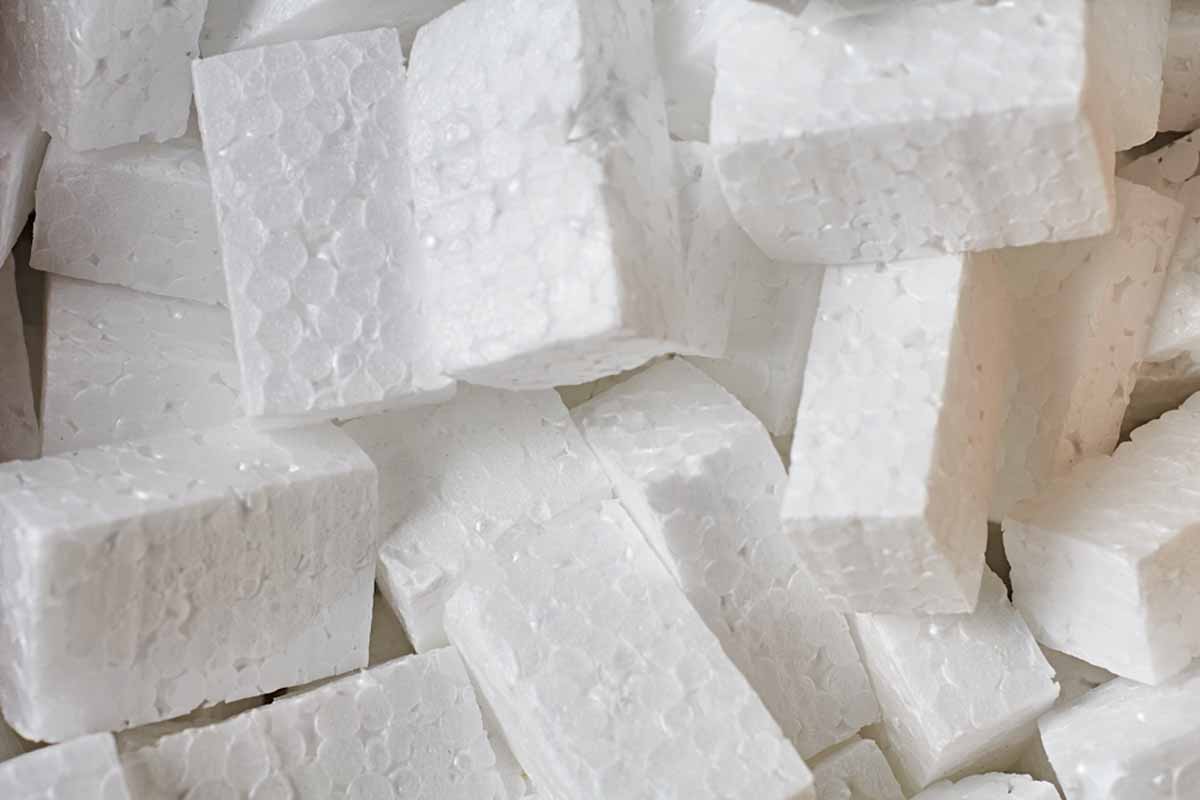
Agilyx and its partners aim to fill gaps in polystyrene recycling that mechanical recycling cannot. | Olek Stock/Shutterstock
A partnership between Agilyx, Technip Energies and INEOS Styrolution is slated to bring up to 100 tons per day of polystyrene chemical recycling capacity to Illinois by 2025.
The chemical recycling plant, located in Channahon, Ill., is the first large-scale facility to incorporate Agilyx’s TruStyrenyx technology, Carsten Larsen, chief commercial officer at Agilyx, told Plastics Recycling update. The company has been running a small-scale operation since 2018.
“This is really, for us, a very, very big thing and really we’re quite excited,” he said.
The plant will use a pyrolysis process to break polystyrene down into styrene monomers that can then be used to make food-grade plastic products or packaging, a press release noted.
The terms “chemical recycling” and “advanced recycling” generally refer to a wide array of processes that use heat, pressure and solvents to break down the molecular chains of polymers into liquids or gasses that can then be processed into fuels, oils, waxes, new plastics or other chemical products.
Technological collaboration
Larsen said the plant will target “very, very distressed waste that’s not being recycled today” and is not seeking to undermine mechanical recycling feedstock streams.
“We take the waste that cannot be mechanically recycled and we chemically recycle that. I think that makes a lot of sense because there’s no silver bullet,” he said. “They all kind of need to fit in, but you’ve got to be honest about the kind of things you go after, because we don’t want to take waste away from mechanical recycling.”
He said the technology could handle flame-retardant foams that contain bromine, for example.
“We make that part of a recipe, we convert it into an oil and we purify that oil, and out of the back end comes a 99.8% pure ASTM-quality styrene monomer, which is one-to-one with fossil fuel styrene monomers,” he said. “And that’s what this TruStyrenyx concept is really about.”
Technip is bringing its distillation expertise into TruStyrenyx, while Agilyx has depolymerization, pyrolysis and conversion knowledge and INEOS is driving construction and operation forward, Larsen noted. The companies anticipate completion of engineering in 2023. That work will form the basis for a financial investment decision, the press release noted.
Larsen said this project was “spot on where we need to be going as an industry.”
“It really fits in as one of the pieces of the total solution. It addresses both the carbon and the circularity of the plastic, so I think it really fits in,” he said. “But also if you look at the wider landscape, it gives American consumers the opportunity to take polystyrene or give polystyrene back, recycle it and then have recycled content in polystyrene packages and so instead of banning polystyrene we can have recycled polystyrene, which is great.”
A Illinois bill to extend special permissions for a chemical recycling pilot plant recently failed to move forward after pushback from environmentalists.
The facility is slated to fall within the boundaries of the bill, but Larsen said the site was selected due to the potential for integration and synergies and that plans were moving forward smoothly.
INEOS worked more on site selection than Agilyx, but he said he thinks “it’s great that it’s in North America.”
Getting to the finish line
Looking forward, Larsen said the companies are looking at the end of the year for completion of the engineering plan and hope to have the plant up and running in 2025.
On a larger scale, he said Agilyx is looking to form more partnerships and commission more plants.
“We at Agilyx wish we had billions of dollars and we could just plop these plants down everywhere, but we are a smaller company, a technology company,” he said. “We believe we’re good and we want to partner with people to get our name out there to say ‘hey, we’re trying to do something good, guys. It’s real recycling.'”
He said there are many other “interesting projects” in the works.
“Once people see that this is a viable route there will be more popping up, hopefully in the U.S. as well because we need them, right?” he said.
To get where his company wants to be, Larsen said the industry needs policy to “help us to move in the right direction and give us a chance.” That includes not banning PS, he said.
“We’re trying to do something good, we’re trying to do something instead of just sitting and saying ‘oh, there’s a lot of plastic laying around, oh, that’s a problem,'” he said.
A wider network of collection for polystyrene is also necessary, Larsen added. He pointed to a planned Cyclyx Circularity Center in Houston as one method. A consortium of companies, Cyclyx was founded by Agilyx and ExxonMobil.
Larsen said take-back programs in schools and at companies would also help build up the supply chain.
More industry collaboration is also vital, he added, between chemical and mechanical recycling and other approaches, such as reuse.
“Agilyx can’t do it on our own,” he said. “We need the industry, everyone from the polymer producers to the brand owners, to policymakers, to the waste managers. We need to lift collectively.”